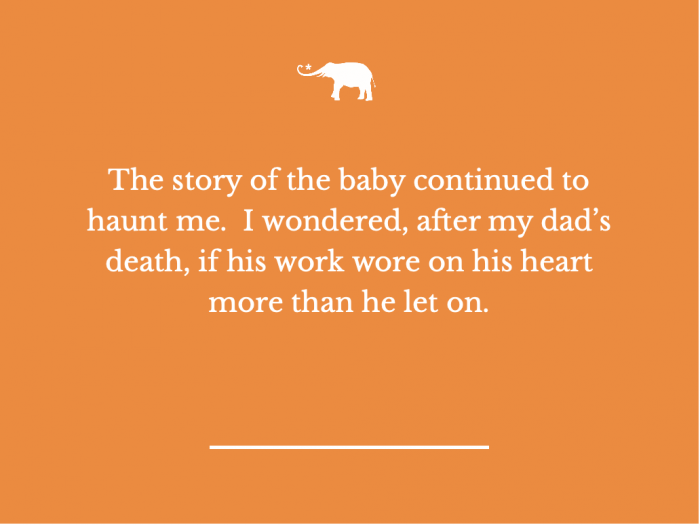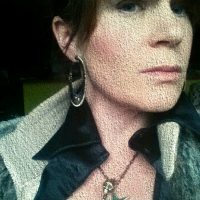He was still complaining about her, even though they’d been divorced for years and he’d remarried. My dad and I were headed up a winding mountain road towards his cabin in the White Mountains. The conversation about my mom was making me car sick. I knew he only wanted her approval and forgiveness. Maybe then he could enjoy his life, his new wife, and his art. At that point I wished he’d talked about his work: other peoples’ lives, not ours.
My dad was a child psychologist. He had a contract with Child Protective Services. He was expensive so they only employed him when the state was considering severing parental rights. He performed a battery of psychological tests, conducted interviews with everyone involved, made a written recommendation and then testified in court. He was known in his field as fair and discerning. Decisions were made based on his recommendations.
Once he had a canoe strapped on top of his jeep in preparation for a weekend outing. An angry client slit the canoe with a knife in the office parking lot. He’d also had his tires slashed. My dad started parking his car blocks away and walked to work. He’d received death threats over the years. Recommending taking people’s kids away is personal.
The hair pen turns were finally over, the terrain leveled out and we drove in silence for miles. I recalibrated on the flat road. “I had an unusual case at work this week,” my dad changed subjects. CPS was investigating a family who had an infant die in the home. My dad was brought in to do an evaluation. He interviewed everyone, including the 3-year-old who was home when the baby died.
My dad tape-recorded all of his interviews. He talked to the little boy in his office for a long time. The child didn’t show signs of abuse and didn’t seem to know anything about the baby’s death. The tape ran out and the recording clicked off. That’s when the little boy told my dad, “Mommy put a pillow over baby’s face and gave him angel wings.” My dad quickly flipped the tape and started recording again, but the little boy was done talking. I asked my dad what he was going to do. “Put it in the report,” he told me. He had no fluctuation in his voice.
My dad was always crisp for work. He did his own ironing and wore a tie when he testified in court. With his dry hands on the steering wheel, he was in a t-shirt and jeans. It startled me that he had the ability to detach from the horrors of his job. We drove on and would be to the cabin shortly. Daylight was fading and there were elk feeding in an open field.
The story of the baby continued to haunt me. I wondered, after my dad’s death, if his work wore on his heart more than he let on. He had very little facial expression and his voice bordered on monotone. He was stiff in his body, especially as he aged.
At his funeral a woman approached me to talk about my dad. She was an immigration lawyer who had worked with him towards the end of his life. She wanted me to know about all the work he’d done for mentally disabled refugees, who needed official diagnoses in order to get services and eventual citizenship. She said that he had done all the evaluations for free, helping close to fifty families.
Cleaning out his office was monumental. He’d stopped filing his paperwork and there were towers of reports everywhere. More current documents had to be kept while the older ones needed to be destroyed. As I looked through the dates, I also skimmed his writing. I could picture the people he described distinctly. He was a diagnostician and storyteller, both efficient and eloquent. The bulk of his work we put into garage bags to shred.
I canonized my father after he died, and we weren’t Catholics. To me he became St. Michael, protector of children and disabled immigrants. I have called on him during difficult times in my life to guide and protect me. I feel him in my blood and sense him in my dreams too. When I awaken, I can smell the pine trees at the cabin and breathe the thin mountain air.











Read 2 comments and reply